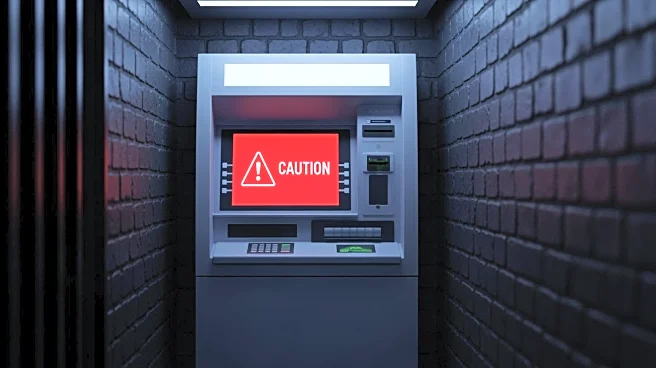What's Happening?
Crypto ATM scams have become increasingly prevalent, with the FBI receiving nearly 11,000 complaints last year, resulting in approximately $250 million in losses. These scams involve fraudsters posing as trusted figures, such as customer service representatives
or law enforcement, to trick victims into sending money through crypto ATMs. The scams exploit the anonymity and rapid transfer capabilities of cryptocurrency, making it difficult for authorities to recover funds. Victims, often elderly, are manipulated into believing they owe money or need to transfer funds urgently, leading to significant financial losses.
Why It's Important?
The rise of crypto ATM scams highlights the vulnerabilities in the rapidly growing cryptocurrency market and the need for increased consumer awareness and protection. These scams not only result in substantial financial losses for individuals but also undermine trust in digital financial systems. The anonymity of cryptocurrency transactions poses challenges for law enforcement in tracking and recovering stolen funds, necessitating stronger regulatory measures and international cooperation. The impact on victims, particularly the elderly, underscores the importance of education and preventive measures to protect vulnerable populations from such fraudulent schemes.
What's Next?
Authorities are likely to intensify efforts to combat crypto ATM scams through public awareness campaigns and enhanced regulatory frameworks. Law enforcement agencies may collaborate with international partners to track and dismantle transnational fraud rings. Crypto ATM operators could face increased scrutiny and be required to implement stricter security measures to prevent misuse of their machines. As the cryptocurrency market continues to evolve, stakeholders, including financial institutions and consumer protection agencies, will need to adapt strategies to address emerging threats and safeguard consumers.














